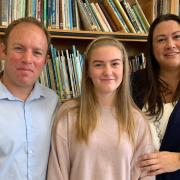Can any child be good at Mathematics? Can any child excel in Art?


The debate as to whether academic success is as a result of genetic advantage, of being born ‘bright’ or whether it is more due to your schooling is not a new one. In recent years, however, the debate has gained publicity through several high-profile authors: Malcolm Gladwell’s 10,000 hours of practice theory is well known as is Daniel Coyle’s, The Talent Code, bearing the subtitle ‘Greatness isn’t born. It’s grown’.
Psychology is contributing valuable research with Professor Carol Dweck, Professor of Psychology at Stanford University, providing compelling evidence that it is the nature of your mindset, be it fixed or growth, that determines your ability to improve. Neuroscientists are now providing a new scientific evidence base for research into learning by being able to record real-time images of a thinking brain. Ask any child at school and they will certainly give you a view on learning.
Their views can be very strong at the start of secondary schooling. “I’m no good at Maths”. “I’m hopeless at drawing”. Perhaps it is too much to hope that we can banish all such phrases to the past, but by encouraging our pupils to think about their thinking, we can offer the alternative view, fostering the idea in our children that with practice comes improvement and desire and belief alongside practice are key to any success.
Martin Hughes, deputy head, Exeter School and Dr James Wilson, chair of Exeter School’s Teaching and Learning Committee.
This article appeared in the Spring issue of the A+ Education Guide South West. Click here to see the whole magazine.



























